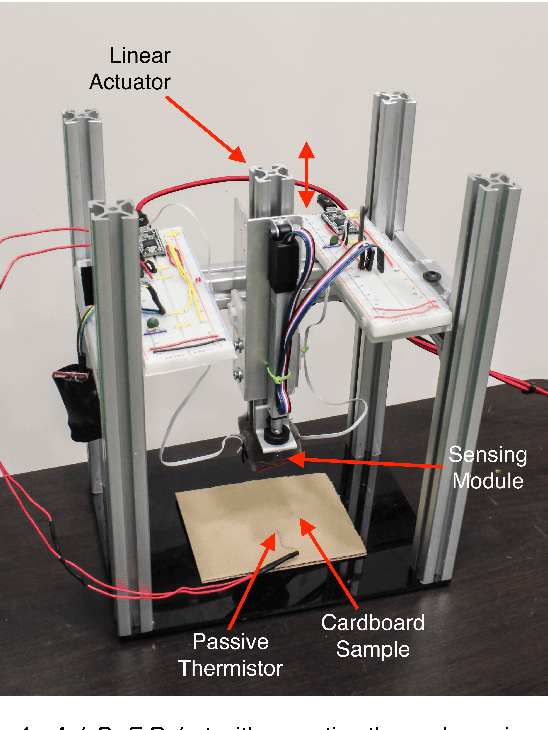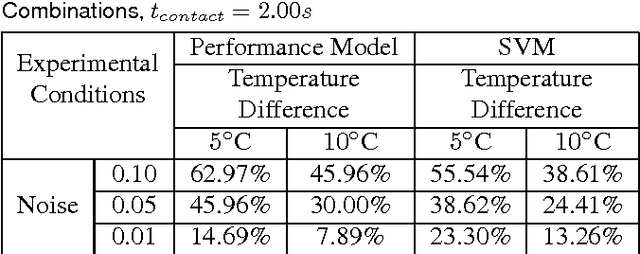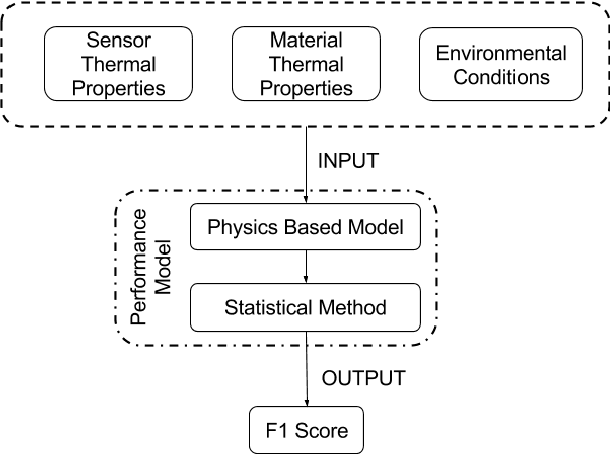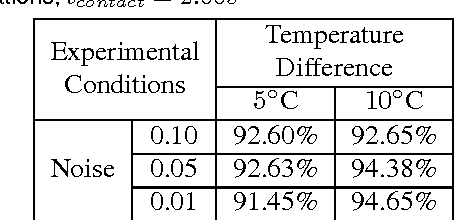A Model that Predicts the Material Recognition Performance of Thermal Tactile Sensing
Paper and Code
Nov 04, 2017



Tactile sensing can enable a robot to infer properties of its surroundings, such as the material of an object. Heat transfer based sensing can be used for material recognition due to differences in the thermal properties of materials. While data-driven methods have shown promise for this recognition problem, many factors can influence performance, including sensor noise, the initial temperatures of the sensor and the object, the thermal effusivities of the materials, and the duration of contact. We present a physics-based mathematical model that predicts material recognition performance given these factors. Our model uses semi-infinite solids and a statistical method to calculate an F1 score for the binary material recognition. We evaluated our method using simulated contact with 69 materials and data collected by a real robot with 12 materials. Our model predicted the material recognition performance of support vector machine (SVM) with 96% accuracy for the simulated data, with 92% accuracy for real-world data with constant initial sensor temperatures, and with 91% accuracy for real-world data with varied initial sensor temperatures. Using our model, we also provide insight into the roles of various factors on recognition performance, such as the temperature difference between the sensor and the object. Overall, our results suggest that our model could be used to help design better thermal sensors for robots and enable robots to use them more effectively.
 Add to Chrome
Add to Chrome Add to Firefox
Add to Firefox Add to Edge
Add to Edge